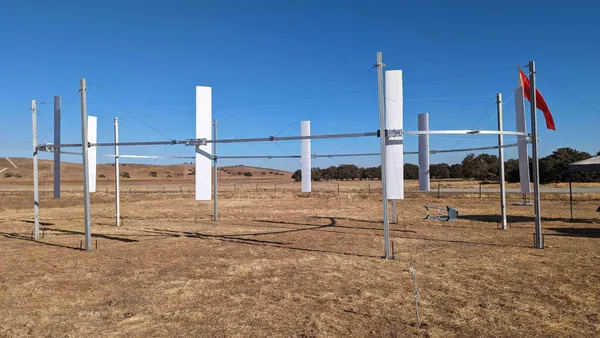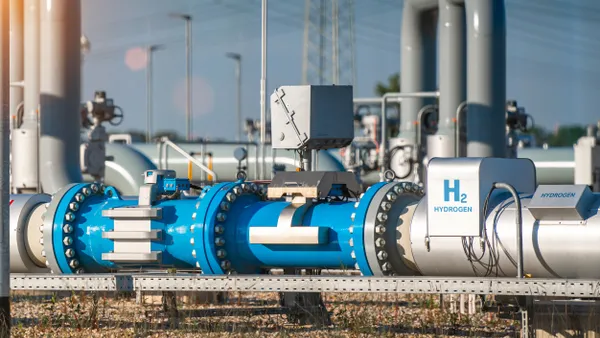Dive Brief:
- The Texas legislature has passed a bill that would eliminate tax abatements for wind turbines sited within 25 miles of military bases, over concerns they pose a safety risk to bases with aviation operations.
- Senate Bill 277 passed the House 76-65 on Tuesday, a day after a preliminary vote; the Senate passed the measure in April. Platts reports Gov. Greg Abbott's office has not indicated if he will sign the bill.
- Opponents of the bill say wind turbines do not pose a threat to military bases, and that the measure is political.
Dive Insight:
There are plenty of wind turbines near military bases and no history of problems, say opponents of the bill. But lawmakers point to the economic importance of the bases when making the case for nixing the tax abatement.
“Our military installations provide a $135 billion boost to the economy and are responsible for employing over 800,000 Texans directly and indirectly," Sen. Donna Campbell, the sponsor of the bill, said in a statement. "Losing military missions due to wind farms negatively affects the long-term viability of these bases, and we cannot allow that to happen.”
Campbell said wind farms are a threat to "mission readiness" at Texas' Sheppard Air Force Base and Naval Air Station Kingsville. She said the Veteran Affairs and Military Installations Committee has heard testimony that wind turbines pose a threat due to their size and proximity to runways, as well as interfering with pilot radar when operating.
However, Platts points out that Dyess Air Force Base in West Texas has hundreds of wind turbines within a 25 mile radius.
But according to Campbell, "it is bad policy to subsidize something when it is in an area that could have a negative impact on our state's economy."
Earlier this year, Republican lawmakers in North Carolina sponsored legislation to stop new wind power permits while a study is conducted into their potential impacts on military operations. But according to Coastal Review Online, Pentagon officials have said there are no issues for military bases caused by wind energy installations.
Increased amounts of wind energy have also sparked worry over declining energy prices in the Electric Reliability Council of Texas (ERCOT). Texas does not have a capacity market; instead, generators make their revenues in the shorter-term energy market and rely on scarcity pricing events to cover the costs of their power plants. But the rise of subsidized wind has cut down on scarcity events—which can drive prices up to $9,000/MWh during periods of high demand.













